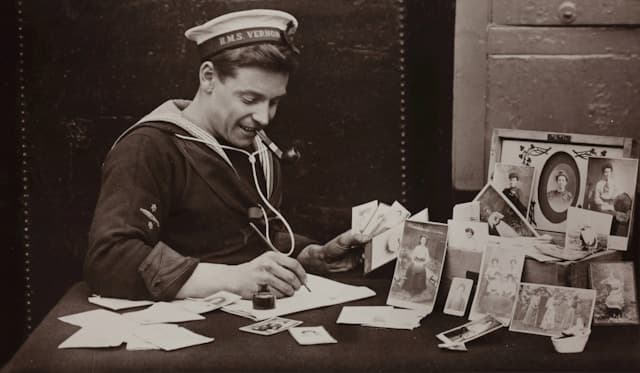
Gratitude Letter Templates & Examples
1/22/2025
Gratitude letters are one of the most powerful ways to strengthen relationships, improve your mental health, and create more joy in your life.
But here's the thing: most of us know we should write them, but we don't know how to start. We worry about sounding cheesy, we're not sure what to say, or we just don't have the right words.
That's exactly why we've created this comprehensive guide with 7 ready-to-use gratitude letter templates and real examples you can copy and paste.
Whether you want to thank a mentor who changed your career, a parent who supported you through tough times, or a friend who's always there, we've got you covered.
Let's dive in and discover how to write gratitude letters that feel authentic, meaningful, and genuinely appreciated.
Why gratitude letters work
- They strengthen relationships by showing people their actions matter.
- They improve mental health (lower stress, better sleep, higher life satisfaction).
- They create a positive feedback loop—gratitude inspires more gratitude.
- They help you remember the good during difficult moments.
How to write one that feels real
- Name the specific act or quality you’re grateful for.
- Describe the ripple effect on your life.
- Close with a wish or invitation for the future.
For deeper connections, consider acknowledging a struggle they overcame. This shows you see their whole story and makes your gratitude even more meaningful.
7 templates (copy/paste)
1) Mentor/Coach
Dear [Name], I’ve been thinking about the season when you [specific act] and how it quietly rerouted my path. Because of you, I [result] and now I [ongoing benefit]. You didn’t just offer advice—you saw something in me before I did. If you’re open to it, I’d love to [small invitation]. Thank you for changing what I thought was possible. —[Your Name]
2) Parent/Caregiver
Dear [Name], I don’t say it enough, but I appreciate [specific thing]. When you [example], it shows me [meaning]. I’ve taken it for granted, and I want to change that. Thank you for [ongoing support/quality]. I love you, and I’m grateful every day that you’re my [relationship]. —[Your Name]
3) Close Friend
Dear [Name], I never properly thanked you for [what they did] during [situation]. Back then I didn’t see how much it helped. Thank you for being the kind of friend who [quality]. I hope I can be that for you too. —[Your Name]
4) Colleague/Manager
Dear [Name], Thank you for [contribution]. Your [example] made a real difference in [outcome]. You don’t just do your job—you do it with [quality]. You raise the bar for everyone. —[Your Name]
5) Someone you disagree with (respectfully)
Dear [Name], We don’t always agree, but I appreciate [quality/action]. When you [example], it shows me [meaning]. I respect that you [quality]. Thank you for [contribution]. —[Your Name]
6) Stranger/Acquaintance
Dear [Name], Thank you for [act of kindness]. It might seem small, but it meant [impact]. You reminded me that small gestures matter. —[Your Name]
7) Partner
Dear [Name], I’ve been reflecting and realized I don’t tell you enough how much I appreciate [quality/action]. When you [example], I feel [effect]. I admire your [quality] and I’m grateful for our connection. —[Your Name]
Two short examples
Dear Mom, I never properly thanked you for those late nights proofreading my papers. Your support didn’t just help me graduate—it taught me how to show up for people. I love you. —Sarah
Dear Alex, Thank you for covering my shift during that emergency. You never made me feel guilty for asking. I hope I can return the favor. —Mike
Tips for Delivering Your Letter
- In Person: For close relationships, giving the letter in person allows you to see their reaction and talk it through. You can say, "I wrote something for you, you can read it now or later."
- Leave it For Them: Leaving a letter on a desk, bedside table, or with a gift can be a gentler approach that gives them space to read and process privately.
- Read it Aloud: This is the most vulnerable and powerful option. It's best for very close, safe relationships and can create a profound moment of connection.
FAQs
How long should a gratitude letter be?
100–300 words is plenty if you’re specific and sincere. The goal is quality, not quantity.
Should I send it or keep it private?
If you think the other person would appreciate it and it feels safe to do so, sending it can strengthen your relationship. If you're unsure, you can always keep it for yourself—the main benefits come from the act of writing. Or, you could write an unsent letter first to process your feelings.
What if I don't know what to be grateful for?
Start small. Think about the people who make your daily life a little easier or more enjoyable. Acknowledging small acts of kindness can have a big impact.
Next step
Want guidance? Try the Gratitude letter (L03) in the app. This is a great exercise to pair with a Letter to Your Younger Self, to appreciate those who supported you. If you’re reaching out for the first time, our contact page is the best place to start.